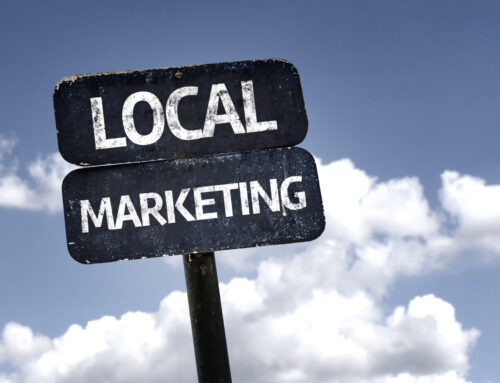According to statistics, the top two online activities are searches and email. If you’re looking to promote your business and gain traffic, positioning yourself in search results is absolutely key. The two main ways to do this are via SEO and SEM. Both of these methods have their own drawbacks and advantages. As a marketer, brand, or business, you’re probably looking to  maximize your efforts and marketing spend to draw in optimized results.
maximize your efforts and marketing spend to draw in optimized results.
Which of these methods will do that for you?
When it comes to SEO vs SEM, the best strategy to focus on will depend entirely on your own situation. If you’re wondering whether you should focus on SEM or SEO in your digital marketing—keep reading to find out how these two cornerstone strategies compare.
What Is SEO?
SEO stands for search engine optimization. It is the practice of optimizing websites for search engines. This gains you “free” ongoing exposure for as long as your pages and website are ranking in search. The primary aim is to generate organic traffic. SEO actually falls under the umbrella of SEM, or search engine marketing. It’s not an entirely different strategy, instead, it is one of the many strategies you can use for search engine marketing. Some common SEO practices are link building, keyword research and optimization, and technical SEO measures like increasing site speed. Another critical part of SEO is making sure your website is structured in a way that it’s easily crawled by search engine spiders so they can index it.
Content marketing also plays a role in SEO as the two strategies work hand in hand. To make sure that your content marketing efforts generate traffic, you need to ensure all of your content and pages are properly optimized with the right keywords. You also need to create high-quality content that meets Google’s E-A-T (expertise, authority, and trustworthiness) criteria.
SEO Pros
SEO is an integral part of digital marketing. If you want to market yourself online you need to have a well-structured, well-performing website that’s optimized for search engines. If you can populate this website with properly optimized content that targets the right keywords, you can attract increasing amounts of traffic over time. One of the big advantages of SEO and content marketing is it helps to serve your target customer’s needs and build brand authority.
Stats show that 70%-80% of people ignore paid ads while online. A large majority of people are online to find content that answers their needs and questions. Not to click on ads. Content and SEO gives you a chance to engage people online who are searching for answers related to your offering. If they click on an informational blog post you published, this will establish you in their eyes as an authority. Another advantage of SEO vs SEM is that SEO strategies build on themselves over time. They have a cumulative, snowball effect.
SEO Cons
You probably noticed that we kept mentioning “time” when talking about the pros of search engine optimization. This is because organic traffic growth through SEO is a long-haul game. Firstly, keeping your site optimized and consistently publishing high-quality content takes time and resources. Besides creating content for your own site, you might also have to invest time in guest posting to generate backlinks.
You can’t expect to publish a few blog posts and see traffic rolling in as soon as you hit publish. Improving your ranking and rising in search can take months—or even years until all of your strategies fully mature. According to a study by Ahrefs, it takes an average of 2 years to rank on the first page of Google.
What Is SEM?
SEM stands for search engine marketing. It comprises of all the different strategies marketers use to promote a brand in search. These include:
- PPC ads
- SEO
- Content marketing
Where SEM differs from SEO is that not only does it build traffic organically, but it also includes the use of PPC advertising. Therefore, when talking about SEO vs SEM, the main differentiating factor to compare is organic growth vs paid ads.
SEM Pros
One of the top advantages of SEM is that paid ads can generate traffic fast. Instead of having to wait months for your SEO strategies to mature, you can begin receiving fresh visitors in a matter of days. Also, many people assume the SEO and organic traffic is “free,” and traffic from PPC is expensive. Although you do have to put up money to pay for your ads, PPC isn’t always necessarily more expensive than SEO and organic traffic generation.
SEM Cons
While PPC ads don’t typically cost astronomically more than SEO methods, you do have to have an ongoing ad budget to keep your ad campaigns going. Also, once you stop paying for ads, they won’t generate any residual traffic for you. Where organic traffic can continue to flow in even if you pause content creation and SEO work, traffic from ads stops completely as soon as your ad campaign ends.
Lastly, running successful ad campaigns that convert requires experience and experimentation. Although ad management might be a little less time-intensive than content creation and SEO, you still need to invest time into it. Besides setting up your ad campaign correctly, you also need to craft the right ad copy, create compelling landing pages that convert, and do things like A/B testing. What’s more, these aren’t things you can set and forget. As the online landscape changes, you need to constantly adapt and refine your ad strategies and landing pages for optimum conversions. Otherwise, you will be leaving ad money lying on the table.
SEO vs SEM: Which Should You Choose?
As you can see, when it comes to SEO and SEM, both strategies have their pros and cons.
If you’re trying to decide whether to concentrate on SEO vs SEM, keep in mind that, technically, SEO is actually part of SEM. Therefore, the main thing to think about is whether you want to focus on organic or paid traffic generation for your brand. Organic traffic methods are great if you have time on your hands and little to no ad budget. On the other hand, if you need results fast and have money for marketing, PPC ads can get traffic fast. Most marketers find that a blended approach of SEO and PPC generates the best results over time.
Do you feel unequipped to handle your own SEO? If so, you can always opt for managed SEO.




Leave A Comment
You must be logged in to post a comment.